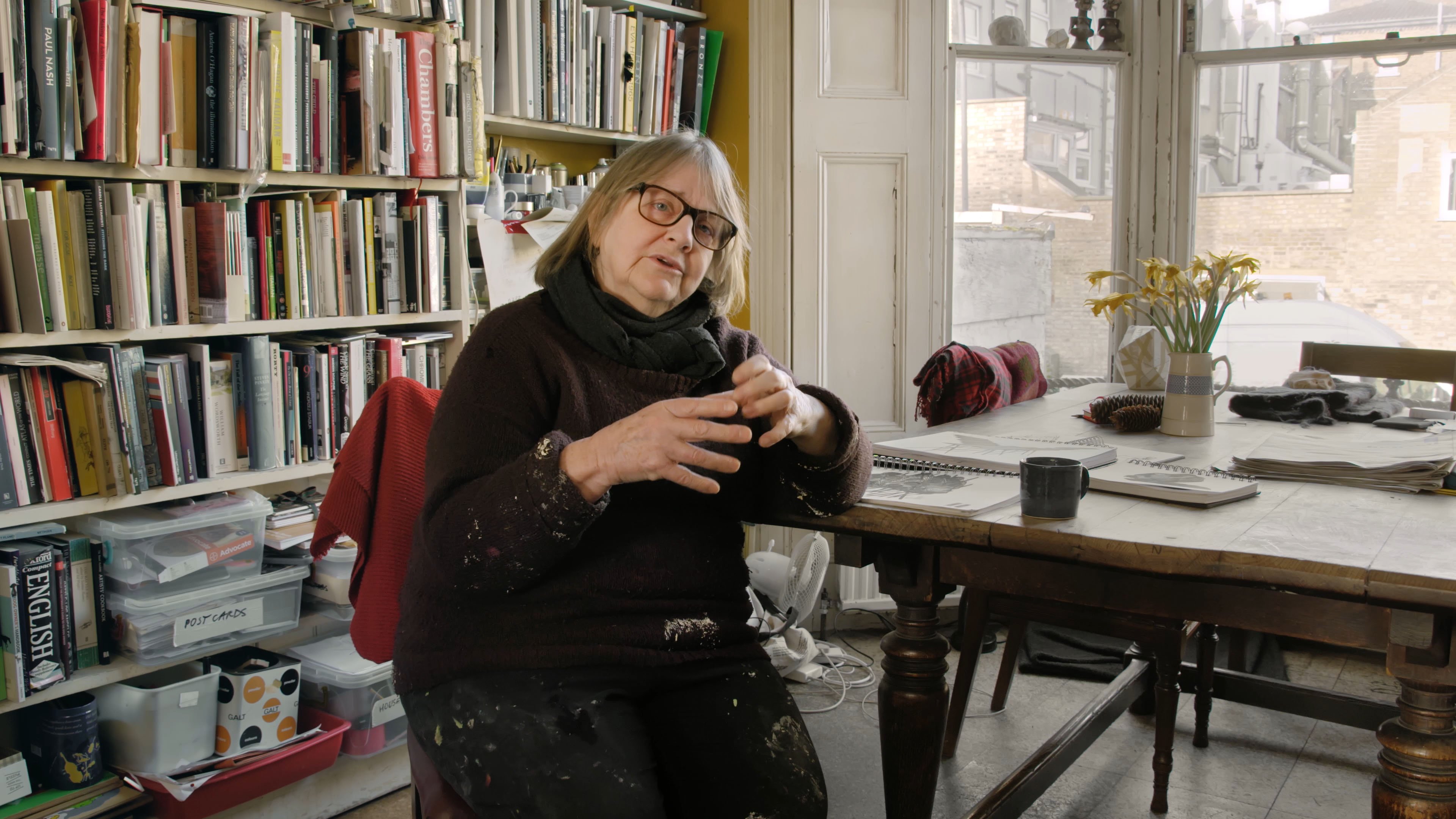
In galleries and museums around the world, teetering masses of plywood, Phyllida Barlow turned piles of fabric, plaster, and cardboard into whimsical, gentle-giant sculptures.
The veteran educator who turned to her own artistic practice late in life, died on March 12 at the age of 78. By amassing everyday materials, Barlow fashioned “non-monumental” works that defied gravity and forced visitors to reckon with the architecture around them. In an exclusive interview filmed as part of Art21’s Extended Play series back in 2021, the artist reflected on the unexpected arc of her career.
“My mother was very creative: knitting, dressmaking, sewing,” the artist said, explaining her ad-hoc approach to creating doll-house furniture, which she described as “the antithesis of the toy shop: everything was about resourcing it within the home.”
That early exposure to a sort of “necessity as the mother of invention” philosophy is apparent in Barlow’s work, which made use of artistic approaches she learned at home, rather than at art school.
“There were so many rights and wrongs about techniques, about processes, about forms, even about ideas,” Barlow recalled of her classes. “All sorts of things were taboo, like domesticity or certain crafts associated with women, like knitting.” It ultimately informed how she taught students of her own.
Installation view of Phyllida Barlow’s “folly,” at the British Pavilion in the 57th Venice Biennale, Italy, 2017. Courtesy of the artist and Hauser & Wirth. © British Council. Photo: Ruth Clark.
Instead of pushing certain notions about how one should make an artwork, Barlow taught each student to delve into an idiosyncratic and unique approach, drawing on what was important and interesting to them. “My teaching was very much to do with what I felt I had missed at art school,” Barlow said.
When she was in her late 60s, Barlow’s own art was finally recognized in its own right, and her colorful installations took over the British Pavilion at the Venice Biennale in 2017. Despite achieving international acclaim, Barlow would have been content without the fanfare.
“There are plenty of artists who don’t have exhibitions… many artists endure that for their entire lives, and it’s heroic,” she said. “The novel that never gets published, should it never have been written? Of course it should be.”
“There is this great, powerful desire to just create something. And does that just get eroded away? I hope not.”
Watch the video, which originally appeared as part of Art21’s series Extended Play, below.
This is an installment of “Art on Video,” a collaboration between Artnet News and Art21 that brings you clips of news-making artists. A new season of the nonprofit Art21’s flagship series Art in the Twenty-First Century is available now on PBS. Catch all episodes of other series, like New York Close Up and Extended Play, and learn about the organization’s educational programs at Art21.org.